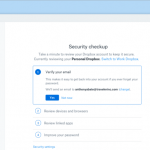Think Tank Touts Pay-For-Privacy Broadband Pricing, Blasts ‘Paternalistic’ Critics
by Wendy Davis, Staff Writer @wendyndavis, August 16, 2016
Pay-for-privacy broadband pricing has come under fire recently from consumer advocates as well as influential lawmakers.

The model involves charging consumers higher monthly broadband fees to avoid online behavioral advertising. AT&T, which pioneered pay-for-privacy pricing in 2013, currently charges some U-Verse customers as much as $66 a month (including taxes and fees) to avoid having their Web history used for ad-targeting purposes.
Some advocacy groups argue that this pricing scheme effectively turns privacy into a luxury service, while influential lawmakers like Sens. Bernie Sanders (D-Vermont) and Elizabeth Warren (D-Massachusetts) have urged the Federal Communications Commission to ban the model.
This week, the high-profile think tank Information Technology and Innovation Foundation countered those critics with a new report arguing that pay-for-privacy pricing benefits consumers by giving them an option for cheaper service.
“Privacy fundamentalists should not prevent those who are willing to give up data on their browsing habits from doing so, especially when it might make the difference in gaining access,” writes the ITIF, which has sided with broadband providers on a host of other issues. Among others, the organization opposed the FCC’s net neutrality rules, and also argues that broadband providers should be able to exempt material from consumers’ data caps.
The group’s comments come as the FCC considers whether to issue regulations that would affect broadband providers’ ability to charge higher fees to people who want to avoid online tracking. The proposed rules would require broadband providers to obtain consumers’ opt-in consent before tracking them for ad purposes. When regulators sought comments about the proposal, they also asked whether providers should be allowed to charge more to customers who reject online behavioral advertising.
Comcast recently met with officials at the FCC and asked them to allow broadband providers to continue to charge more to consumers who don’t want to be tracked for ad purposes.
New America’s Open Technology Institute publicly countered Comcast by arguing that pay-for-privacy pricing will harm consumers — especially low-income residents who may be more likely to agree to tracking in exchange for Web access.
The ITIF contends in its new report that the advocates’ arguments are “paternalistic.”
“Banning discounts to make broadband more affordable based on a personal choice about how much one values one’s privacy is a remarkably elitist, paternalistic view,” the ITIF says.
“Allowing these differentiated pricing programs to go forward recognizes customers are competent enough to decide where they stand on these trade-offs and that many consumers, of all income levels, will choose to save money,” the organization writes. “Effective notice and choice should continue to be the guiding light when it comes to privacy discounts, not flat bans.”
MediaPost.com: Search Marketing Daily
(23)














